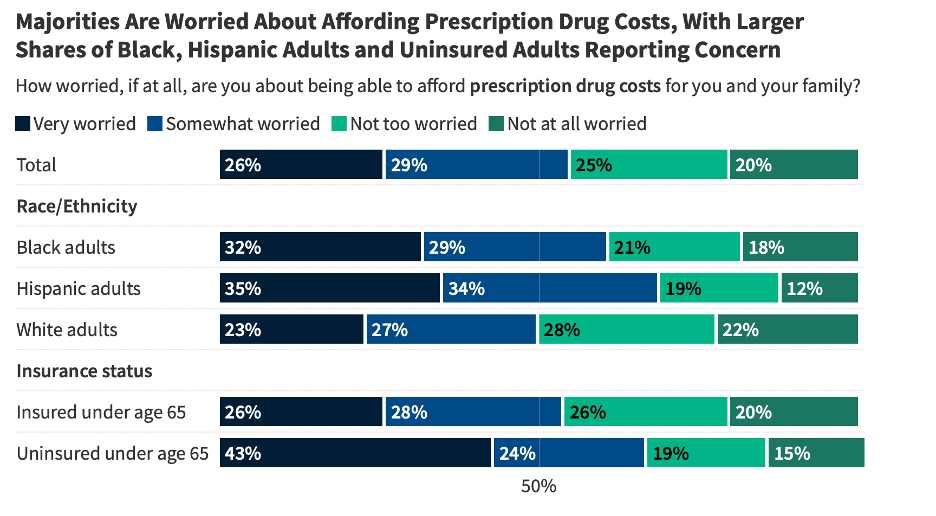Extreme couponing is a cultural phenom featured on reality TV, but coupons are not just for the grocery store anymore. Pharmaceutical companies got in on the action. The general idea around offering a coupon is to attract consumers to your higher-priced product by offering a limited-time discount. The coupon is an effective strategy to lure customers away from the cheaper version and build up your brand loyalty. For drug manufacturers, offering a coupon keeps up sales even after a less expensive generic hits the market. The out-of-pocket cost to patients is lower, but the coupon may actually increase the cost to their health plan. Also, using a coupon may not count towards a patient’s deductible, increasing their annual costs even as the out-of-pocket is less. Because healthcare financing is mostly confidential, it is difficult for patients and their physicians to effectively calculate the coupon benefit.
Manufacturer coupons, provided by the companies that develop and market prescription drugs, have become a popular strategy to make brand-name drugs more accessible. But what lies beneath the surface of these seemingly beneficial discounts? Let’s delve into how these coupons work, their benefits and drawbacks, and how HealthTech companies can help navigate the field.
How Do Drug Manufacturer Coupons Work?
They are very specific. Like other kinds of coupons, a drug manufacturer coupon is only for a specific product, like a brand-name drug. When a less expensive, generic version of the drug is available, the coupon brings the cost of the brand-name version down to be competitive with the generic’s price. Patients can find coupons from various sources, including doctors’ offices, pharmacies, or directly online, and use them to receive significant discounts at the point of sale. The drug manufacturer reimburses the pharmacy for the discount, ensuring the patient pays less at the register.
Why Do Manufacturers Offer These Coupons?
Sales! Coupons make brand-name medications more competitive with lower-cost generic versions. Competition is fierce in the drug market, and these coupons woo patients and healthcare providers to the brand.
The formulary is hot real estate for drug manufacturers. If they can get their drug on the list of preferred medications that insurance plans agree to cover, then sales of the drug go up. Offering a coupon is one tool manufacturers use to influence insurance plans to include their drug on the coveted formulary.
The Drawbacks
The short-term benefits provided to members are clear, but the long-term impact is murkier. Coupons skew purchases toward more expensive brand-name drugs, and though the copay is reduced, the manufacturer still charges the insurance company as if the full copay was charged. This means that while the member pays less, the insurance company may end up paying more, ultimately leading to higher premiums and greater costs to the healthcare system as a whole.
Insurers employ strategies like coupon accumulators to maintain their cost-sharing structures between the plan and their members. Cost-sharing includes premiums, copays, and the annual deductible. Plans designed the coupon accumulator so they are not required to count a drug manufacturer’s payments toward their member’s deductible and out-of-pocket maximum.
The coupon accumulator policy highlights the ongoing tug-of-war between immediate patient benefits (keeping an individual’s out-of-pocket costs low) and systemic financial sustainability (keeping premiums affordable for all members).
Another drawback is the manufacturer may build in restrictions that make using the coupon tricky for members. Some common restrictions and requirements include:
- Prohibition of Medicare or any federal- or state-run insurance.
- Limitations to how much a member can fill in a specific period.
- The coupons are only good for a set time, like six or twelve months. After the coupon runs out, the patient must change drugs or pay more.
- Manufacturers require personal medical information.
- Insurance coverage is required because most manufacturer coupons bill to primary insurance.
HealthTech to the Rescue
In some instances, a coupon can help a patient overcome the affordability barrier, but in other cases, using a coupon could delay reaching the deductible or cause treatment gaps when the coupon runs out. It is difficult to say that these coupons are the best option for every member without analyzing the specifics on a case-by-case basis. HealthTech aims to leverage the benefits of these coupons while addressing their challenges, ensuring that the pursuit of affordability does not inadvertently inflate healthcare costs.
To recap, drug manufacturer coupons are a double-edged sword in the quest for affordable healthcare. They offer immediate financial relief to patients but raise important questions about long-term cost implications for healthcare plans and employers. HealthTech companies like RazorMetrics can balance these aspects by providing the best long-term strategy for members and their insurers. Coupons are just one tool in the tech toolbox that can reduce healthcare costs while improving accessibility.
Contact us to hear about our full suite of options to help lower pharmacy costs.




